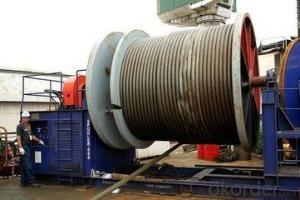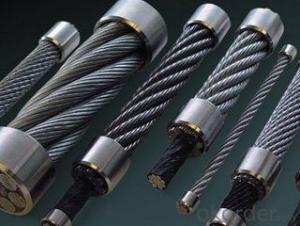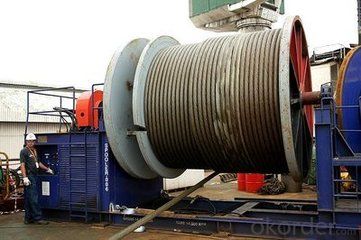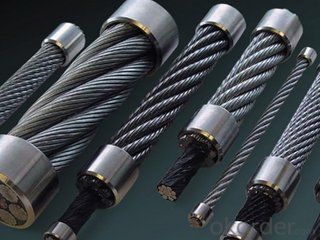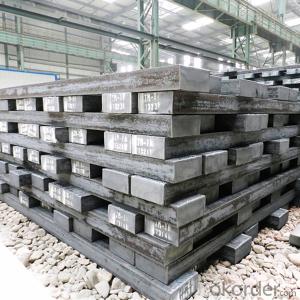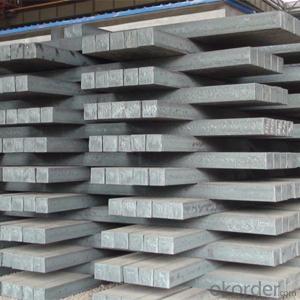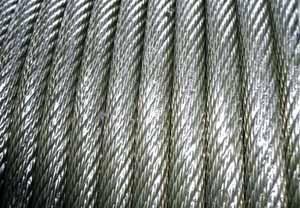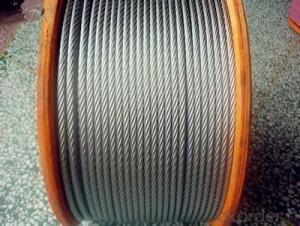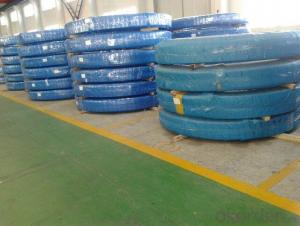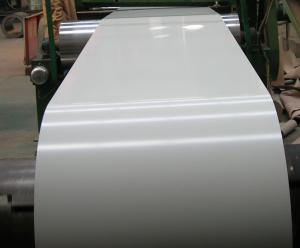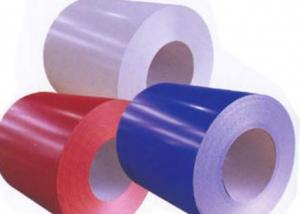STEEL WIRE ROPE FOR OIL
- Loading Port:
- China Main Port
- Payment Terms:
- TT OR LC
- Min Order Qty:
- -
- Supply Capability:
- -
OKorder Service Pledge
Quality Product, Order Online Tracking, Timely Delivery
OKorder Financial Service
Credit Rating, Credit Services, Credit Purchasing
You Might Also Like
 |  |
6×19S+FC | 6×37+FC |
公称直径 Nominal Diameter (mm) | 参考重量 Approximate Weight | 绳公称抗拉强度(N/mm2) Norminal T/S | |||||||
PS级 | IPS级 | EIPS级 | |||||||
钢丝绳最小破断拉力(KN) Min B/L | |||||||||
in | mm | Ib/ft | kg/m | KIb | KN | KIb | KN | KIb | KN |
1/2 | 13 | 0.42 | 0.63 | 18.70 | 83.2 | 21.40 | 95.2 | 23.60 | 105.0 |
9/16 | 14.5 | 0.53 | 0.79 | 23.60 | 106 | 27.00 | 120.0 | 29.80 | 132.0 |
5/8 | 16 | 0.66 | 0.98 | 29.00 | 129 | 33.40 | 149.0 | 36.60 | 163.0 |
3/4 | 19 | 0.95 | 1.41 | 41.40 | 184 | 47.60 | 212.0 | 52.40 | 233.0 |
7/8 | 22 | 1.29 | 1.92 | 56.00 | 249 | 64.40 | 286.0 | 70.80 | 315.0 |
1 | 26 | 1.68 | 2.50 | 72.80 | 324 | 83.60 | 372.0 | 92.0 | 409.0 |
1 1/8 | 29 | 2.13 | 3.17 | 91.40 | 407 | 105.20 | 468.0 | 115.60 | 514.0 |
1 1/4 | 32 | 2.63 | 3.91 | 112.40 | 500 | 129.20 | 575.0 | 142.0 | 632.0 |
1 3/8 | 35 | 3.18 | 4.73 | 137.0 | 612 | 155.40 | 691.0 | 171.0 | 760.0 |
1 1/2 | 38 | 3.78 | 5.63 | 163.8 | 728 | 184.0 | 818.0 | 202.0 | 898.0 |
1 5/8 | 42 | 4.44 | 6.61 | 191.7 | 853 | 214.0 | 952.0 | 236.0 | 1050 |
1 3/4 | 45 | 5.15 | 7.66 | 222.50 | 990.0 | 248.0 | 1100 | 274.0 | 1220 |
1 7/8 | 48 | 5.91 | 8.80 | 255.40 | 1136 | 282.0 | 1250 | 312.0 | 1390 |
2 | 52 | 6.72 | 10.0 | 290.6 | 1293 | 320.0 | 1420.0 | 352.0 | 1560 |
- Q: What are the applications of steel angles?
- Steel angles have a wide range of applications in various industries. They are commonly used in construction for structural framing, providing support and stability to buildings. Steel angles are also used in the manufacturing of machinery, equipment, and vehicles, where their strength and durability are crucial. Additionally, they find application in the fabrication of infrastructure such as bridges, walkways, and platforms. The versatility of steel angles makes them valuable in many other applications, including shelving, fencing, and reinforcing concrete structures.
- Q: How is steel used in the production of amusement park rides?
- Steel is used in the production of amusement park rides due to its strength, durability, and ability to withstand heavy loads and forces. It is commonly used to construct the framework, supports, and tracks of roller coasters and other thrill rides, ensuring the safety and stability of the ride while providing a smooth and thrilling experience for riders.
- Q: What are the uses of steel in the oil and gas industry?
- Steel is widely used in the oil and gas industry due to its exceptional strength, durability, and resistance to corrosion. It is primarily utilized for constructing pipelines, drilling equipment, and storage tanks. Steel pipes are used to transport crude oil, natural gas, and other fluids over long distances, ensuring safe and efficient delivery. Additionally, steel is employed in the fabrication of platforms, rigs, and subsea structures, providing a sturdy foundation for offshore drilling operations. Its versatility and reliability make steel an essential material in the oil and gas industry.
- Q: How are steel products used in the construction of disaster management and emergency response centers?
- Steel products are commonly used in the construction of disaster management and emergency response centers due to their strength, durability, and fire resistance. Steel is used for structural elements such as beams, columns, and frames, providing a stable framework that can withstand extreme conditions. It is also used for roofing, walls, and doors, offering protection against natural disasters and potential security threats. Additionally, steel can be easily prefabricated, allowing for faster construction and flexibility in designing functional spaces within these centers.
- Q: How is steel used in the production of elevator systems?
- Steel is a crucial material in the production of elevator systems as it is used for constructing the elevator car, the support structure, and the guide rails, ensuring durability, strength, and safety for the entire system.
- Q: How is steel used in the production of electrical appliances and wiring?
- Steel is commonly used in the production of electrical appliances and wiring as it provides a strong and durable framework for various components. It is often used in the construction of appliance casings, motor housings, and brackets, ensuring the safety and protection of internal electrical components. Additionally, steel is used in electrical wiring as a support structure, providing strength and stability to carry and distribute electricity effectively.
- Q: How is steel used in the aerospace industry?
- Steel is used in the aerospace industry for various applications such as aircraft structures, engine components, landing gear, and fasteners. It provides strength, durability, and resistance to high temperatures, making it a vital material for constructing safe and reliable aircraft.
- Q: What are the different types of steel reinforcement used in construction?
- There are various types of steel reinforcement used in construction, including mild steel bars, deformed steel bars, welded wire mesh, and steel fibers.
- Q: How is steel wire galvanized for electrical applications?
- Steel wire is galvanized for electrical applications by immersing it in a bath of molten zinc. This process, known as hot-dip galvanizing, creates a protective coating of zinc on the surface of the wire. The wire is first cleaned to remove any dirt or oil, and then it is dipped into the molten zinc, ensuring complete coverage. The zinc coating provides excellent corrosion resistance to the steel wire, making it suitable for electrical applications that require durability and longevity.
- Q: How do steel products contribute to the construction of data centers and IT facilities?
- Steel products play a significant role in the construction of data centers and IT facilities by providing structural support, durability, and safety. Steel is widely used in the construction of the building's framework, ensuring the facility can withstand the weight of heavy equipment and support the complex infrastructure required for data storage and processing. The use of steel also allows for flexible and scalable designs, accommodating future expansions or modifications. Additionally, steel's fire-resistant properties help protect critical IT equipment from potential hazards, making it an essential component in ensuring the reliability and security of data centers and IT facilities.
Send your message to us
STEEL WIRE ROPE FOR OIL
- Loading Port:
- China Main Port
- Payment Terms:
- TT OR LC
- Min Order Qty:
- -
- Supply Capability:
- -
OKorder Service Pledge
Quality Product, Order Online Tracking, Timely Delivery
OKorder Financial Service
Credit Rating, Credit Services, Credit Purchasing
Similar products
Hot products
Hot Searches
Related keywords
